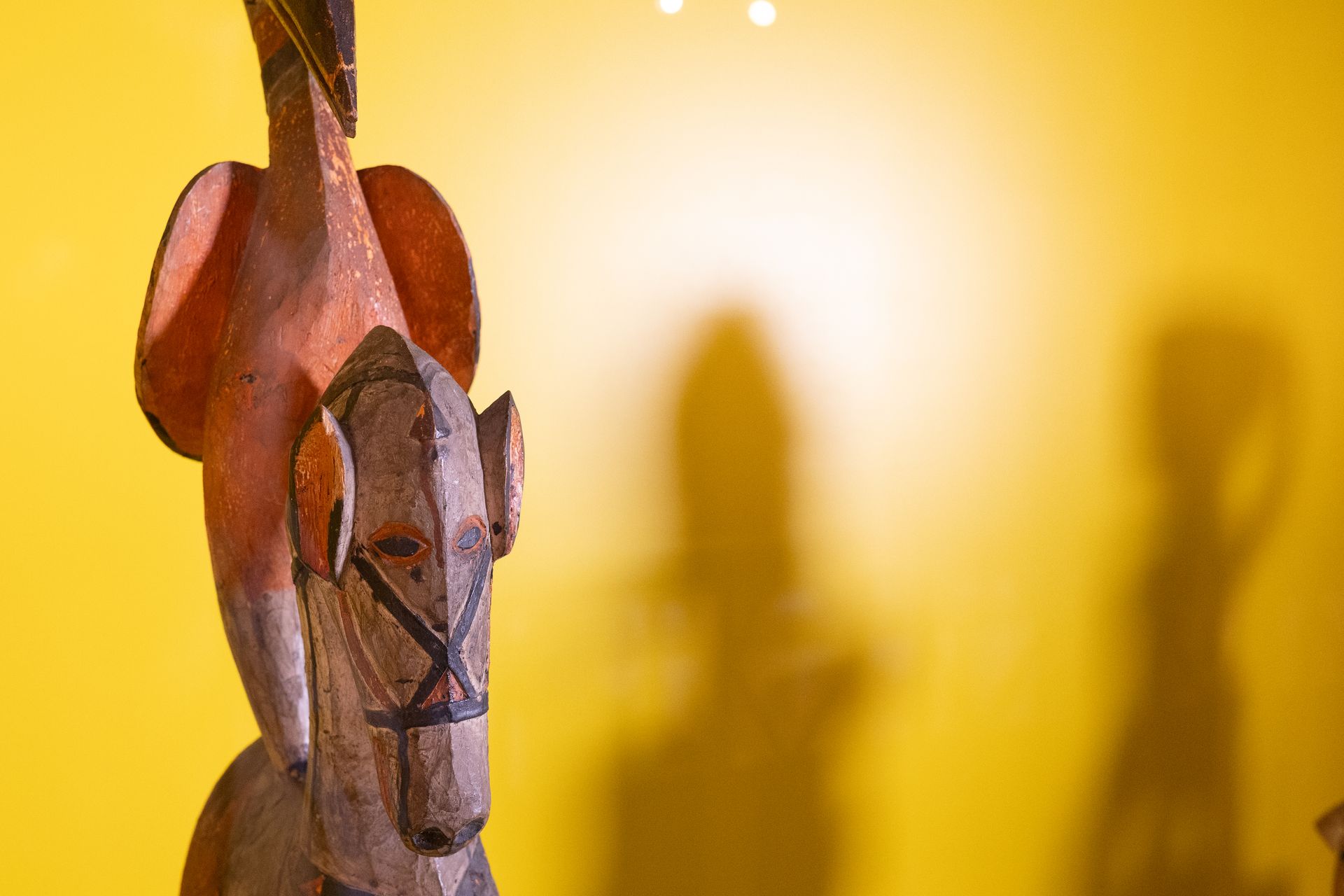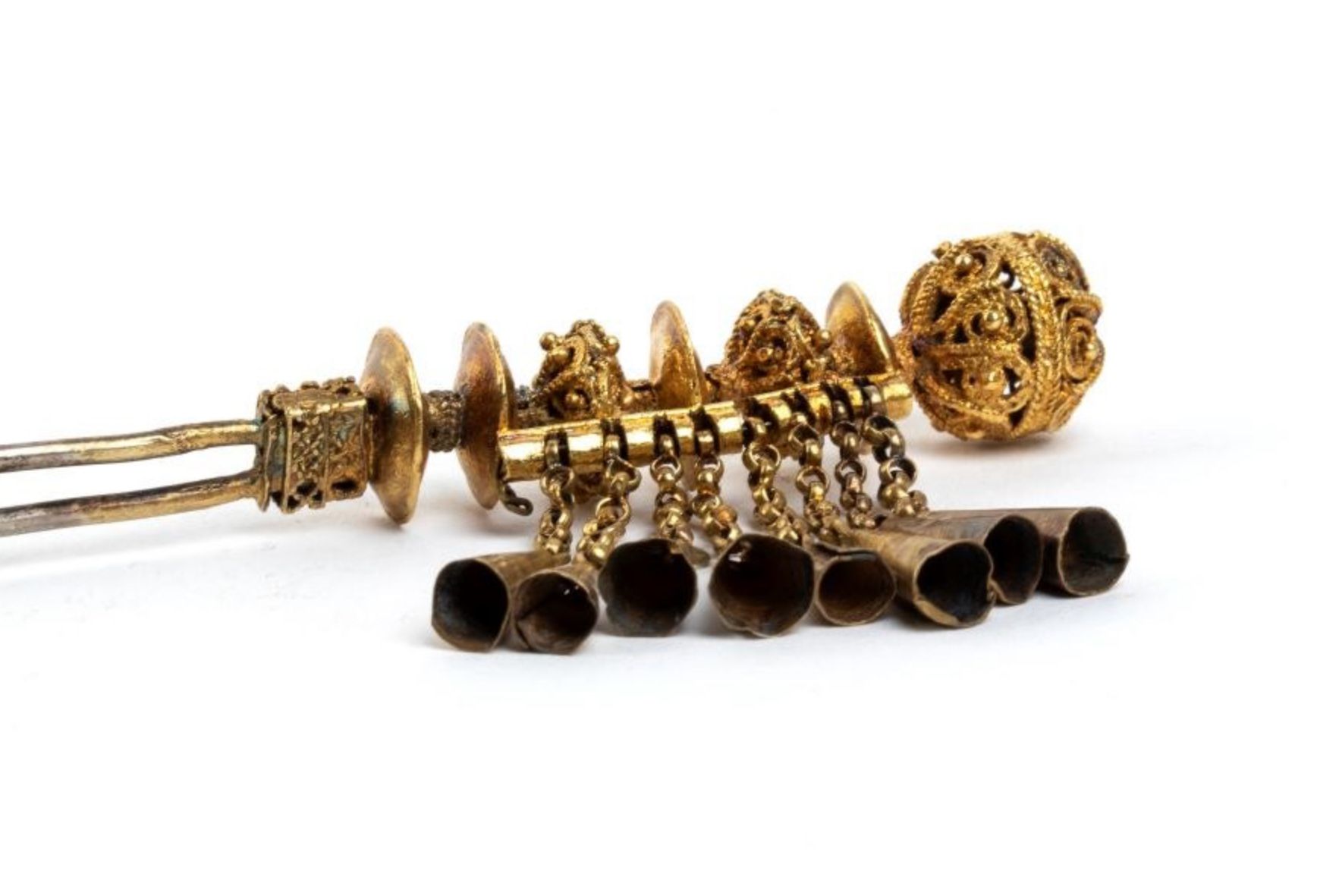Cultural Restitution
SHARE ARTICLE
When is a restitution not a restitution? When an object's ownership is transferred, but not its possession?
Last week, an important group of fifteen Cycladic antiquities from the collection of New York businessman Leonard Stern was placed on temporary exhibition at the private Cycladic-Goulandris Museum in Athens (also known as the Museum of Cycladic Art). The exhibition is part of an elaborate new arrangement, concocted by multiple parties but with the endorsement of the Greek Government. The Metropolitan Museum of Art in New York will be able to exhibit the collection for at least the next 25 years. The New York Times described the arrangement as “an inventive collaboration”.
But the archaeological and heritage communities that gathered outside the Museum’s gates last week took a different view. They believe the deal violates several aspects of Greek archaeological law and will undermine future restitution claims put forward by Greece.
The fifteen antiquities chosen for exhibition in Athens, mostly Cycladic figurines and vessels, are part of a collection of 161 significant antiquities acquired over 40 years by Stern and dating from the third millennium BC. All were donated by Stern to a Delaware-based, not for profit organisation called the Hellenic Ancient Culture Institute. The Institute has been given responsibility for safeguarding the collection and organising future exhibitions.
Following three years of negotiations, an unusual agreement has been reached that nominally places Stern’s collection under the ownership of the Greek state. However, in reality, responsibility for its possession will remain with the Hellenic Ancient Culture Institute. It's the Institute that in turn has agreed to loan the collection to the Met for the next 25 years, and the Institute that will decide whether a further extending loan of 25 years may be negotiated. After 10 years, some of the collection at the Met will travel back to Greece for exhibition at the Cycladic-Goulandris - or other museums suggested by that museum. In return, the Met will receive items on loan from other Greek collections, plus an endowment to promote the Stern collection.
The one-year loan of fifteen items that opened in Athens last week appears like a goodwill gesture to launch the agreement. Speaking to the New York Times, Stern said the agreement provides a blueprint for other collectors to exhibit their ancient artworks in American museums “while avoiding acrimony with foreign governments”.
Others are more concerned. The New York Post has described the arrangement as “a very controversial deal”, while Yannis Hamilakis, the Joukowsky Family Professor of Archaeology and Professor of Modern Greek Studies at Brown University, has called it a “sorry affair”, pointing out that no member of the Greek archaeological and museum community has stepped forward to support or defend it.
So, is this a genuine restitution, avoiding potential disputes over who owns or controls antiquities held in foreign collections? Or is it just a stitch up?
Hamilakis believes the Delaware-based Institute was set up with the express purpose of securing this deal. Certainly, the composition of its Board gives an indication of its likely direction of policy. Its directors include the president of the Cycladic-Goulandris Museum, two other members of the Goulandris family, Stern’s own son and the president of the Leonard Stern Family Foundation. On the face of it, Stern certainly hasn't surrendered total control of his collection to the Greek state.
The protection of Greece’s cultural heritage is of course a state responsibility and in the deal reached between all four signatories to the final arrangement – the Greek Ministry of Culture, the Met, the Cycladic-Goulandris Museum and the Hellenic Ancient Culture Institute – it was essential to emphasise that the Greek state remains the sole owner of this collection. Stern had no other choice. Speaking to the New York Post Stern maintained “My professionals worked with their professionals and that is how they structured it. It is what I was advised to do.”
But it’s clear that possession and control remain firmly with the Delaware Institute, whose leanings towards Stern family interests are still all too apparent. It's important to note this arrangement is entirely different from the transfer of legal title and control negotiated in July 2022 between the Nigerian and German governments over the Benin Bronzes in German state collections. In that case, the opportunity for German museums to continue to exhibit a number of Benin Bronzes on a loan basis, serving as ambassadors for Nigerian culture, formed a key part of the agreement signed by both nation states. There were no other outside or private interests influencing the arrangement and Nigeria may demand the return of loaned Bronzes at any future time. The same can not be said with Stern's collection.
The Greek Government has been pivotal to this deal. Not only did their parliament ratify the deal, but the prime minister, Kyriakos Mitsotakis, was himself involved in its negotiation. Defending the agreement, the Government insists that all the collection will be returned to Greece in 50 years’ time.
But its critics remain concerned the Greek Government has condoned a formula that places their nation’s interests behind those of a private Greek museum and a US entity created specifically to preserve the interests of the original collector/donor.
If this formula is to be used as a model for ‘repatriating’ other private collections with “complex provenances”, what price must a country pay for losing control? Will it even work?
After this was written.....
In January 2024, the Metropolitan Museum of Art unveiled its new display of Cycladic works from the Stern collection. The works are displayed under the terms of a five-decade partnership agreed with the Greek state. The agreement recognises that Greece retains ownership of the objects and selected works will travel between New York and Greece. But a new non-profit organisation based in Delaware, the Hellenic Ancient Cultural Institute, will "safeguard" the collection in the US - at least for fifty years. The agreement is described as "an exciting new model for repatriation".
Photo: Leonard Stern at the Metropolitan Museum of Art
Courtesy of The New York Times
More News



